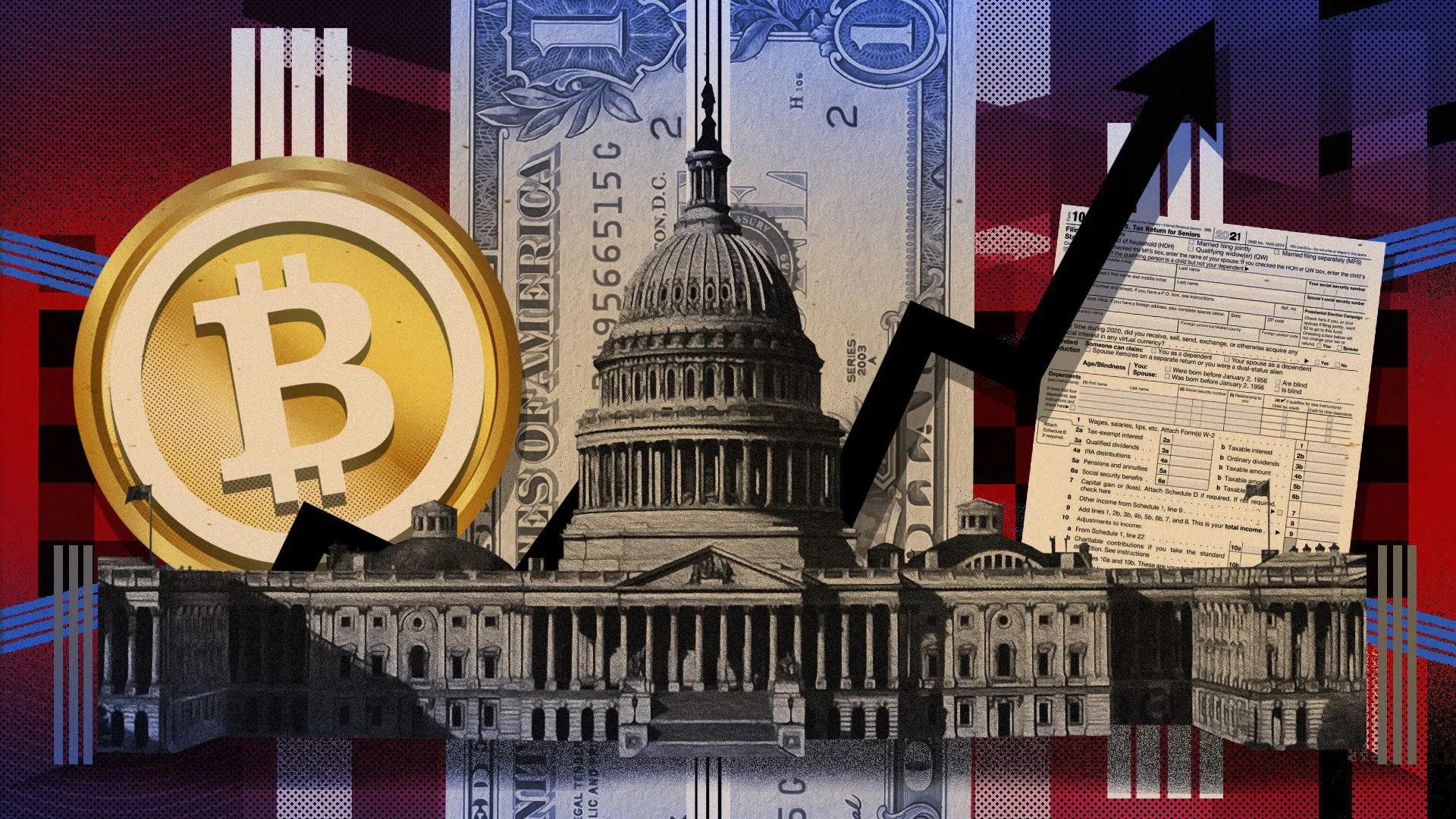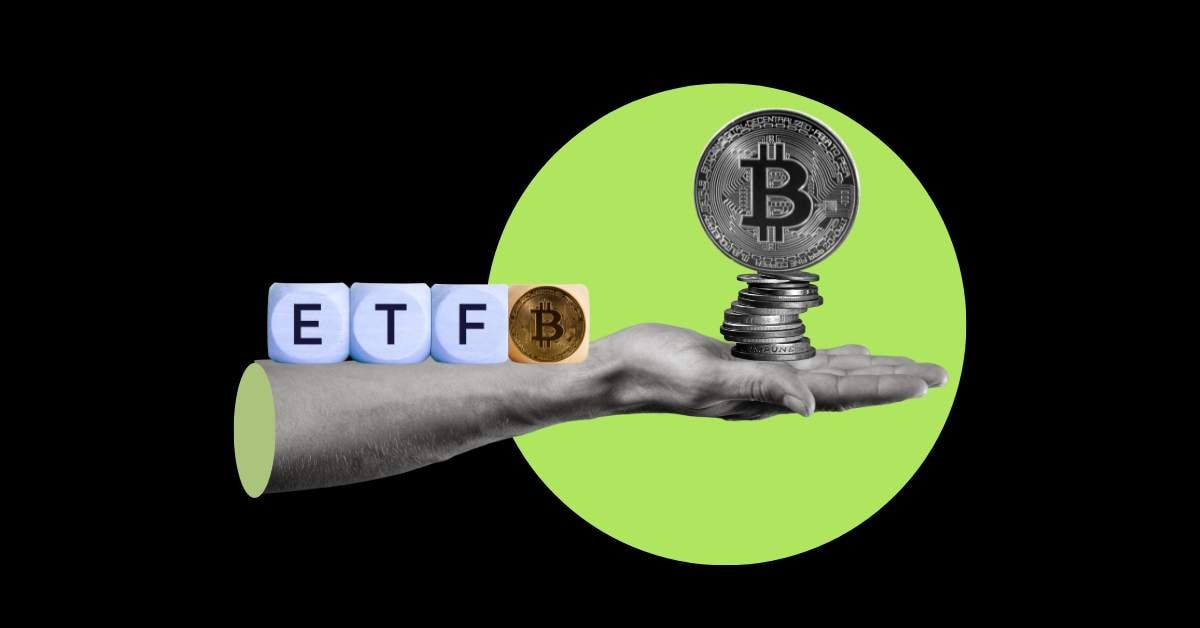Decoding the Role of Bitcoin for Americans in 2024: Investment, Opportunity, and Security
What is the role of Bitcoin for Americans in 2024? Amidst a backdrop of economic transformation, Bitcoin stands at the forefront as a potential investment and a barometer for regulatory development. This article provides a straightforward analysis of Bitcoin’s influence on American financial appreciation, governmental oversight, and the pursuit of digital asset security at a time when its relevance in commerce, investment, and politics is unprecedented.
Key Takeaways
- Bitcoin is increasingly considered a hedge against inflation due to its scarcity and has seen a historical annual return of 13% from October 2022 to October 2023, leading to heightened interest among American investors.
- Bitcoin ETFs have attracted significant investment, especially from millennials, with the SEC at a critical juncture that may shape the future of these funds and potentially approve a spot Bitcoin ETF.
- The U.S. government is actively shaping the regulatory landscape for cryptocurrencies, balancing risk mitigation with innovation, and the introduction of a potential central bank digital currency (CBDC) could further influence the market.
Bitcoin as a Hedge Against Inflation in 2024

With the specter of inflation looming large, savvy investors are turning their gaze toward Bitcoin, seeking a safe harbor for their hard-earned money. The allure of Bitcoin as an inflation hedge stems from its hard-capped supply of 21 million coins. As traditional currencies succumb to the whims of central bank printing presses, Bitcoin’s scarcity could potentially become its greatest strength, driving demand and value skyward.
The Bitcoin narrative has captured the public’s imagination, especially in the heat of the 2024 election, where inflation is a hot-button issue. A recent surge in the crypto market shows that 43% of Americans are considering joining the ranks of crypto investors, and with a historical annual return of 13 percent from October 2022 to October 2023, it’s clear why.
The Continued Rise of Crypto Assets as Inflation Safeguards
Crypto assets are enjoying a moment in the sun as potential inflation safeguards, with optimism among both current owners and those on the sidelines. A healthy 56 percent of crypto enthusiasts are betting on brighter market prospects in 2024, signaling an enduring faith in digital assets as a bulwark against inflation, including other crypto assets.
Meanwhile, 15 percent of those not yet in the crypto fold are poised to take the plunge and purchase crypto, hinting at an expanding market ready to embrace this modern financial paradigm.
Comparing Bitcoin to Traditional Inflation Hedges
When pitted against traditional inflation hedges like gold and Treasury bonds, Bitcoin’s unique qualities come to the fore. Its unique qualities include:
- Finite supply, echoing the scarcity of precious metals
- Burgeoning market capitalization, suggesting a growing acceptance as a legitimate store of value
- Ease of conversion to cash without significant market disruption, setting it apart and could be the deciding factor for investors weighing their options in a volatile market.
Embracing Bitcoin ETFs: A New Era for American Investors

Bitcoin ETFs, also known as bitcoin exchange traded funds, represent a seismic shift in the investment landscape, extending a welcoming hand to those who might have viewed the cryptocurrency sphere with trepidation. While the introduction of these funds has caught the eye of certain demographics, notably millennials and existing crypto owners, its impact on the broader swathe of retail investors remains to be seen.
The Surge in Bitcoin ETF Popularity
The allure of Bitcoin ETFs has proven irresistible, drawing a staggering $15 billion in investment inflows since their debut, and setting record highs in March 2024. This investor enthusiasm coincided with a spike in Bitcoin’s price, underlining the symbiotic relationship between market sentiment and the burgeoning popularity of Bitcoin ETFs.
The SEC’s Role and the Future of Bitcoin ETFs
The SEC’s pivotal role in crafting the destiny of Bitcoin ETFs cannot be understated, with its decision-making process poised to inject a staggering $79.5 billion into the Bitcoin market over three years. With a court-ordered deadline to approve a Bitcoin ETF and a heightened focus on digital asset regulation, the SEC finds itself at the crossroads of a financial evolution and on the verge of a potential spot Bitcoin ETF approval.
Digital Currency and Government Oversight

The digital currency landscape is under the microscope, as the federal government oversight adapts to the rapid evolution of the crypto market. Efforts like the Biden Administration’s Executive Order have set the stage for a delicate balance between mitigating risks and nurturing innovation.
With Congress introducing bills aimed at refining cryptocurrency regulation, the winds of change are sweeping through the halls of power, catching the attention of the Internal Revenue Service.
Cryptocurrency Regulation and Its Impact
The regulatory environment casts a long shadow over the crypto world, shaping its adoption and reception among potential users. A murky regulatory framework has left many on the fence, concerned about the legality and security of their investments.
Yet, in the face of these challenges, cryptocurrencies offer a glimmer of resistance to government-driven inflation, challenging the status quo of financial oversight.
Central Bank Digital Currency Developments
Amidst the regulatory shuffle, the concept of a central bank digital currency (CBDC) has emerged, promising the stability of government backing with the innovation of blockchain technology. As the Federal Reserve explores the potential benefits of a CBDC, the White House is integrating it into a broader strategy for regulating digital assets.
Bitcoin’s Integration into Financial Institutions

As the tide of digital assets rises, financial institutions are riding the wave, embedding Bitcoin and other cryptocurrencies into their service portfolios. From crypto trading to custody solutions, banks are responding to the clamor of customer demand, signaling a significant step toward mainstream acceptance.
Crypto Services Offered by Banks
Banks have not only embraced the crypto trend but are actively expanding their offerings to cater to the digital asset crowd. With heavyweights like JPMorgan Chase and Goldman Sachs setting up crypto trading desks, the banking sector is signaling a clear commitment to the crypto market.
Meanwhile, innovative banks are pushing the envelope, offering crypto-backed loans and direct links to cryptocurrency exchanges, blurring the lines between traditional and digital finance.
Security Measures for Crypto Holders
In the world of crypto, security is paramount. Financial institutions are fortifying their digital battlements with cutting-edge cryptography and blockchain technology, providing the bulwark needed to protect crypto transactions from the ever-present threat of fraud.
The Sociopolitical Influence of Bitcoin in 2024

Bitcoin’s ripples extend beyond the financial realm, influencing the sociopolitical tapestry of 2024. From political campaigns to international relations, cryptocurrency is becoming a key player in the global narrative.
Bitcoin in Political Campaigns and Donations
The political landscape is witnessing a new trend, with Bitcoin donations emerging as a novel form of voter engagement and candidate funding. As the 2024 elections earn the moniker of the ‘Bitcoin Election,’ cryptocurrency is proving to be more than just a financial instrument; it’s a tool for political expression.
Geopolitical Tensions and Bitcoin’s Role
In the grand chessboard of geopolitics, Bitcoin’s strategic value cannot be underestimated. Its maturation as an asset class intersects with the national security considerations of the U.S., particularly in the context of power struggles with global rivals like China.
Mass Adoption and the Everyday American
Bitcoin’s journey to mass adoption is gaining momentum, with the barriers to entry gradually eroding and the cryptocurrency making inroads into everyday life. With nearly half of American voters considering cryptocurrency investments, the stage is set for a financial transformation.
Overcoming Barriers to Buying Crypto
The path to buying crypto is becoming smoother, thanks to initiatives like Bitcoin ETFs and enhanced accessibility via financial institutions. As the crypto market matures, it’s becoming more inclusive, attracting interest from a wider array of investors who were once reticent.
Bitcoin’s Presence in Retail and Commerce
Bitcoin’s foray into retail and commerce is unfolding, with major financial institutions offering a suite of crypto-related services. Though merchant adoption lags, initiatives like crypto-backed debit cards are bridging the gap between digital and fiat currencies, expanding Bitcoin’s utility as a medium of exchange.
Technological Advancements and Bitcoin’s Evolution
The relentless pace of technological innovation is propelling Bitcoin’s evolution, with blockchain advancements and smart contract functionality opening new horizons. The rising tide of on-chain transactions and value transfer signals a vibrant ecosystem ripe for growth.
Innovations in Blockchain Technology
Blockchain technology is at the forefront of innovation, with breakthroughs in interoperability and integration with emerging technologies paving the way for a more connected and functional crypto landscape. These enhancements are not only boosting transaction speeds and cost efficiencies but also fortifying the security of the crypto market.
The Role of Smart Contracts in Crypto Today
Smart contracts are becoming the backbone of the crypto world, enabling decentralized applications that redefine security and efficiency. With initiatives like BitVM, smart contracts on Bitcoin are set to become more versatile, boosting the cryptocurrency’s utility and appeal.
The Risk Factor: Evaluating Bitcoin’s Unique Risks
While Bitcoin’s potential is undeniable, it is not without its unique risks. The cryptocurrency’s notorious volatility and vulnerability to cyber crimes pose significant challenges, serving as a cautionary tale for the uninitiated.
Understanding Bitcoin’s Volatility
Investors navigate the stormy seas of Bitcoin’s volatility, where the promise of high returns is met with the peril of dramatic value shifts. With regulatory protections for cryptocurrencies on crypto exchanges still nascent, investors must tread carefully, wary of the risks associated with such an unpredictable market.
Mitigating the Threat of Cyber Crimes
In the face of cyber threats, organizations are fortifying their defenses with comprehensive cybersecurity protocols, zero-trust frameworks, and regular security assessments.
From insider threats to third-party vulnerabilities, a proactive and vigilant approach is essential to safeguard the integrity of digital assets.
Summary
As we wrap up our exploration of Bitcoin’s multifaceted role for Americans in 2024, it’s clear that this digital currency is more than a speculative asset – it’s a financial and sociopolitical force. From its potential as an inflation hedge to its growing presence in retail and commerce, and its influence on political campaigns, Bitcoin is carving out a vital place in our lives. While risks remain, the promise of security and opportunity in an increasingly digital world continues to draw new participants to this revolutionary market.
Frequently Asked Questions
How does Bitcoin serve as a hedge against inflation?
Bitcoin serves as a hedge against inflation because its fixed supply cap of 21 million coins prevents its value from being diluted by increasing supply, unlike fiat currencies.
What role do Bitcoin ETFs play for American investors?
Bitcoin ETFs provide American investors with a simple way to invest in Bitcoin without actually owning it. This has made them popular and has the potential to attract new investors into the crypto market.
How are financial institutions integrating Bitcoin into their services?
Financial institutions are integrating Bitcoin into their services by offering crypto trading, investing, and custody solutions, as well as developing crypto trading desks and merging traditional banking with digital asset management. This allows them to cater to the growing demand for cryptocurrency services.
What are the risks associated with investing in Bitcoin?
Investing in Bitcoin carries the risks of volatility, cyber theft, loss of passwords, transaction errors, and a lack of government protections, all of which can deter potential investors.
How are technological advancements influencing Bitcoin’s evolution?
Technological advancements in blockchain and smart contracts are enhancing Bitcoin’s functionality and accessibility, driving its adoption and utility.

